News
Article
HCPLive Pre-AAD 2024 LinkedIn Chat Recap
Author(s):
On Monday, March 04, 2024, HCPLive Dermatology hosted its first pre-AAD LinkedIn chat—an event held in anticipation of the American Academy of Dermatology’s 2024 annual meeting. With 4 co-hosts moderating the event, we posted a series of 6 questions related to the upcoming meeting for dermatologists and other care providers to offer their perspective ahead of the AAD’s annual meeting.
In this article, we will be recapping top responses to questions from the chat. For the full list of responses, reactions, and shares from the event, use the link to each post provided below.
LinkedIn Chat Co-hosts:
Mona Shahriari, MD, assistant clinical professor of Dermatology at Yale University School of Medicine as well as the associate director of Clinical Trials with Central Connecticut Dermatology.
James Del Rosso, DO, senior vice president of Clinical Research and Strategic Development at Advanced Dermatology and Cosmetic Surgery as well as an adjunct clinical professor of Dermatology at Touro University.
Eingun James Song, MD, director of Clinical Research and associate chief medical officer at Frontier Dermatology as well as a clinical instructor at the University of Washington.
Heather Woolery-Lloyd, MD, director of the Skin of Color Division in Frost Department of Dermatology and Cutaneous Surgery at the University of Miami Miller School of Medicine as well as a principal researcher for Baumann Cosmetic & Research Institute.
Q1: If you could recommend one peer's upcoming presentation or talk at AAD 2024, who would it be and why?
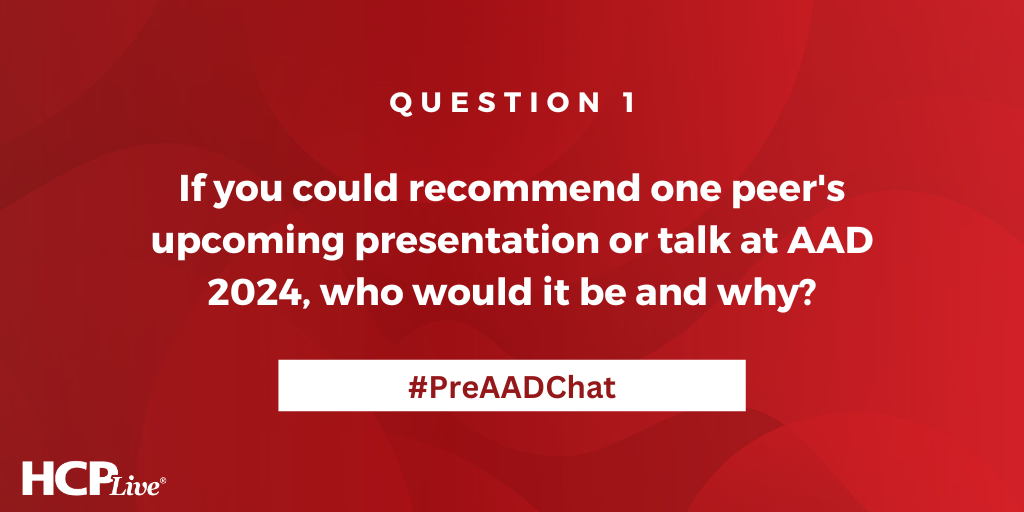
Top Comments
James Del Rosso, DO: I prefer sessions that focus on What's New in Dermatology, Therapeutic Hotline, and the Late Breaker presentations that discuss recent study results.
Heather Woolery-Lloyd, MD: I always enjoy the Acne symposium and the Cosmeceuticals symposium.
Mona Shahriari, MD: I have to agree with you James Q. Del Rosso, DO, the late breaker session is one of my absolute favorites. I love being on the cutting edge of novel therapeutics and this ensures we know what the coming year has in store. I know there are many incredible abstracts and posters for atopic dermatitis, psoriasis, hidradenitis suppurativa that will be presented so I can't wait!
Q2: What advice do you have for medical students or early-career dermatologists attending AAD for the first time?
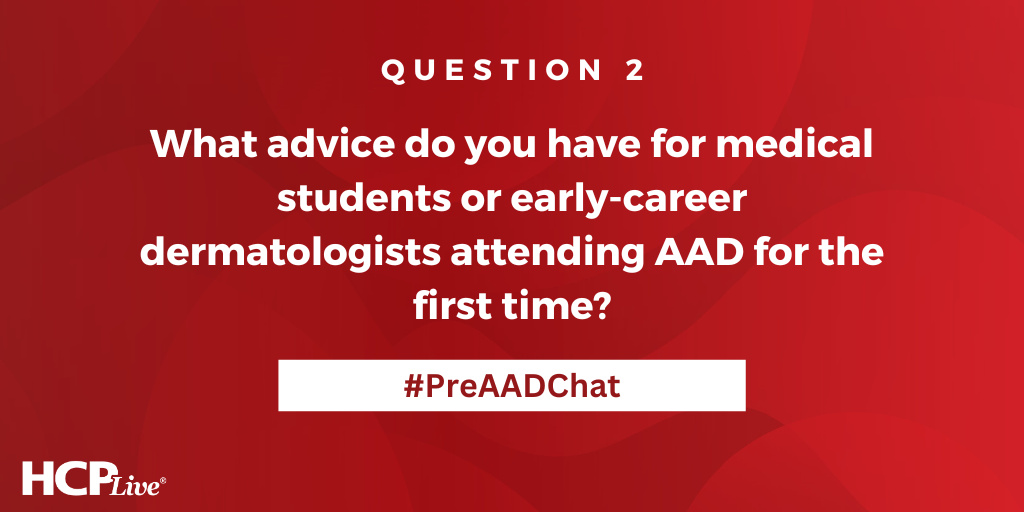
Top Comments
Mona Shahriari, MD: AAD is a LARGE meeting and it can be overwhelming at times. I love the #aad2024 app. I download it, save my favorite sessions ahead of time, and use it to navigate the meeting.
Other tips: Don't forget comfy shoes, there is a lot of walking; stop by the exhibit hall, it is quite grand and unlike anything you've ever seen; and don't forget to have a little fun.
Heather Woolery-Lloyd, MD: My advice would be to take it all in and enjoy every minute of it! The AAD is such a fantastic meeting to learn from leaders in the field.
James Del Rosso, DO: It is a very overwhelming meeting. If you have a dermatology mentor have them guide you. If not, go to sessions that seem of interest and look up key faculty so you know something about them. Do not be a wallflower. Introduce yourself. Be friendly and not too anxious or pushy but make sure they perceive your interest. Try to meet residency faculty and chairs while there.
Eingun James Song, MD: Network, network, network. Even if you didn’t have mentors in medical school or residency, it doesn’t mean you can’t find one at the meeting (that’s what I did). As already mentioned, there are SO many receptions you can attend so you need your be strategic with your time. Focus on areas that interest you (e.g. I like inflammatory disorders so I generally skip the cosmetic or surgically oriented ones).
Q3: What trial or session are you most looking forward to at AAD 2024?
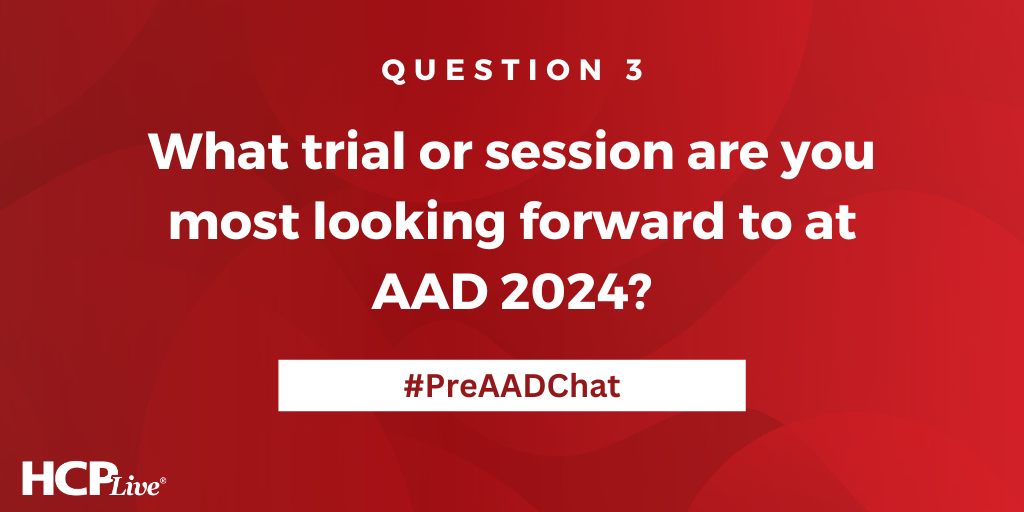
Top Comments
Mona Shahriari, MD: I personally loved last year's "JAK Inhibitors: A New Frontier" and can't wait to see the updated 2024 session! Over the next few years, the JAK inhibitors are going to revolutionize how we treat a whole host of diseases within dermatology, so now is the time to learn about them, become comfortable with them, because at some point, a patient will walk through our door needing that treatment and we want to be equipped to give it to them.
Q4: What agent or class are you most excited to learn more about?
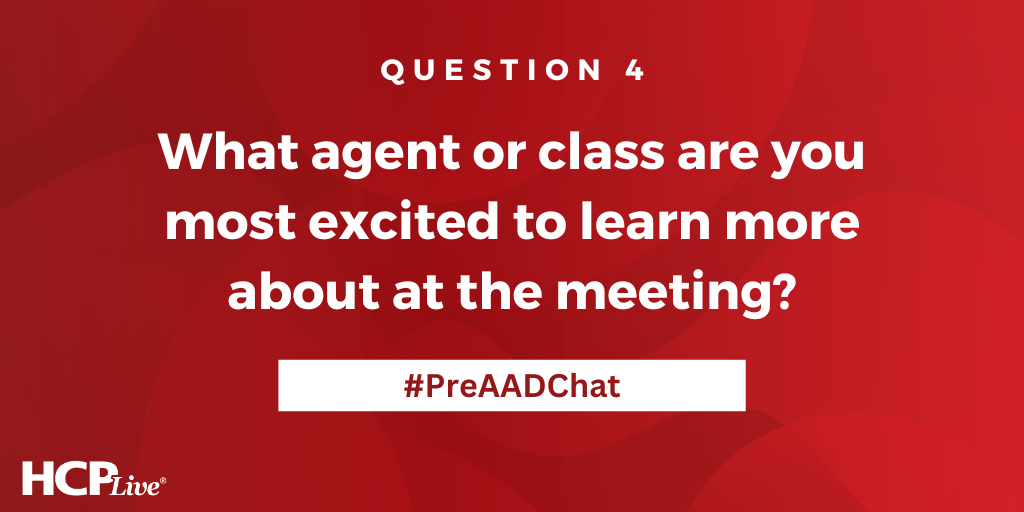
Top Comments
James Del Rosso, DO: I am most interested in Kinase Inhibitors and their diverse applications, agents affecting the OX40-OX40L pathway, and any new on monoclonal antibodies. Longer term safety updates are always of interest.
Mona Shahriari, MD: I can't pick just one! That's the beauty of dermatology, there is so much innovation happening on a daily basis! But, if I had to pick one, the novel oral therapies for plaque psoriasis have me intrigued! Can they compete with our biologics? I'm dying to find out!
Eingun James Song, MD: We're finally starting to see new innovation in the topical space for atopic dermatitis with the imminent approvals of tapinarof and roflumilast cream. The neat thing is that both of these creams are already approved for psoriasis, so we already have a lot of comfort with these medications. [In my opinion], the only thing that is going to stop widespread adoption is going to be insurance companies limiting access to these medications.
Michael Cameron, MD: [I] agree with James Q. Del Rosso, DO, excited to hear more about 0X40/OX40L we need more MOAs for this disease! (AD -> Multiple end others presenting as one phenotype). Going to be a great discussion!
Heather Woolery-Lloyd, MD: I am interested to learn more about how AI will impact dermatology. There is so much happening in that space.
Q5: In what disease or area of dermatology is a guideline update most needed?
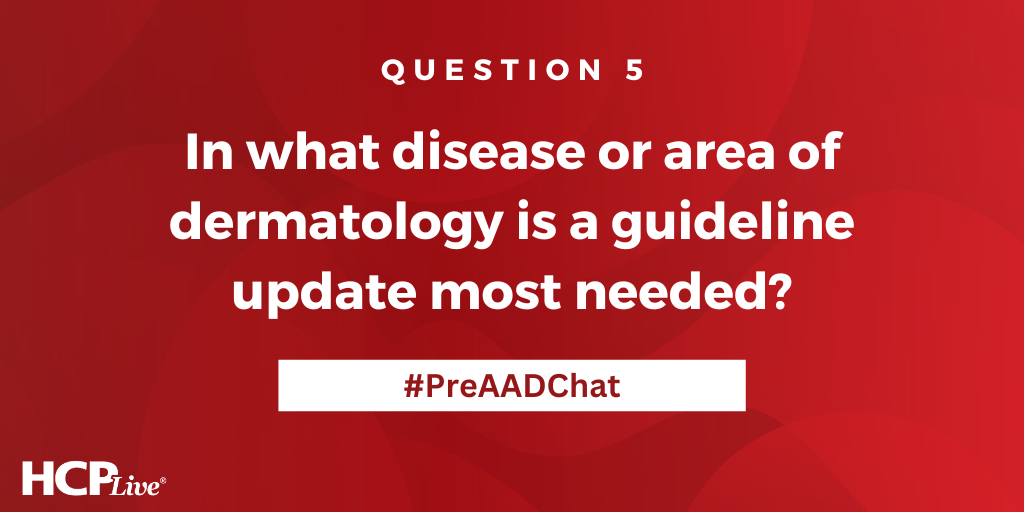
Eingun James Song, MD: Hidradenitis suppurative is my vote. Our current staging system (Hurley) is not useful and there are patients with "mild" disease that desperately need an advanced systemic agent whereas patients with "severe" disease that have stable/burned out disease where a medical therapy will make little to no benefit.
We need guidelines that recognize the heterogeneity of this disease and can identify certain endo/phenotypes that may need a different therapeutic approach.
James Del Rosso, DO: Hidradenitis suppurativa is in grave need of new guidelines as many previous treatments were minimally effective and this disease has permanent physical sequelae from what lies beneath.
Mona Shahriari, MD: We need an update on how to diagnose AD and how to better assess disease severity in AD to encompass not only the objective clinical exam but the multidimensional burden of disease beyond the skin. So many of these patients are sitting in PCP offices being promised they will grow out of their atopic dermatitis or being told they do not have AD because they didn't have it as a child. Moreover, topical fatigue is leading to so many moderate to severe AD patients not seeking therapy because "the creams just don't work". We need to do right by our patients and educate clinicians through updated guidelines.
Q6: What else are you looking forward to at the American Academy of Dermatology’s annual meeting?
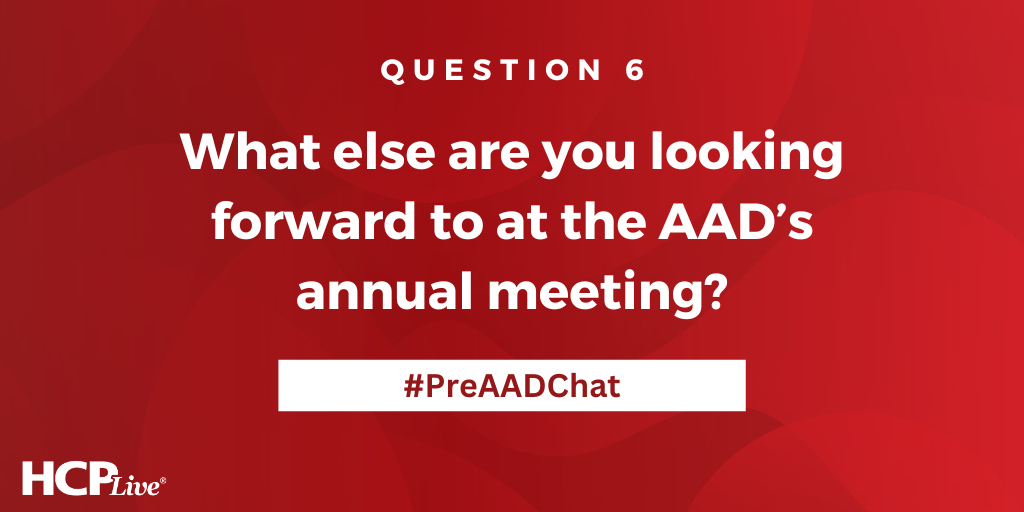
Top Comments
Heather Woolery-Lloyd, MD: Seeing all of my friends and colleagues. It’s fun to catch up with everyone.
Mona Shahriari, MD: I love to see friends and colleagues from around the country. With our busy lives, sometimes this is the only opportunity to see each other and catch up. So I love AAD as an excuse to reconnect with old friends and make new ones that will last a lifetime!
James Del Rosso, DO: The SERENDIPITY of running into and spending time with people I did not expect to see is often one of the best parts.
Eingun James Song, MD: Like Mona Shahriari, MD, James Q. Del Rosso, DO, and Heather Woolery-Lloyd, MD, have said, catching up with friends and colleagues. It’s incredible to see all the amazing things everyone is doing, whether they have their own private practice, work in academia, or have moved into industry. There is always something for everyone which is what makes dermatology so great!





